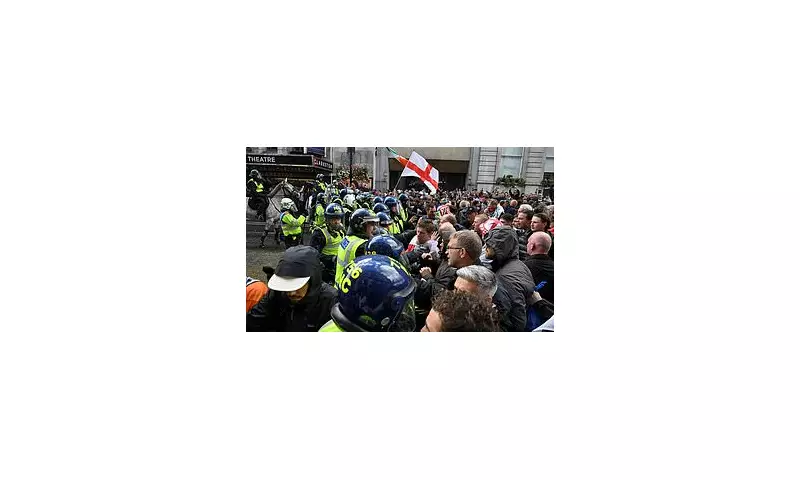
Fresh controversy has engulfed the Metropolitan Police following what witnesses describe as 'excessively forceful' tactics deployed during the recent Unite the Right demonstration in Westminster. The event, which saw supporters of Stephen Yaxley-Lennon, widely known as Tommy Robinson, gather has sparked a fierce national debate on the balance between maintaining public order and protecting the right to protest.
Public Outcry Captured in Explosive Poll
An exclusive Daily Mail poll has laid bare the depth of public sentiment, revealing that a significant portion of the British populace believes police overstepped the mark. The findings indicate that 45% of respondents characterised the officers' actions as 'heavy-handed,' with a mere 16% offering their support for the way the event was policed. A further 39% remained undecided, suggesting a nation deeply divided on the issue.
This statistical backlash arrives alongside the circulation of new video evidence on social media, purportedly showing officers employing aggressive techniques against protesters, intensifying scrutiny on Scotland Yard's operational decisions.
A Day of Tension on the Streets of London
The protest, which unfolded in the shadow of the UK's seat of power, was characterised by a massive police presence. Attendees reported a tense and volatile atmosphere from the outset. Organisers and participants alike have since accused the Met of initiating unprovoked confrontations, alleging that the fundamental right to peaceful assembly was undermined by the intimidating show of force.
One protester was quoted, stating, 'We were there to make our voices heard peacefully. The response was disproportionate and designed to silence us.' Conversely, the Metropolitan Police have defended their strategy, citing a duty to prevent disorder and protect the wider public from potential harm, a statement that has done little to quell the growing criticism.
The Ripple Effect: Liberty, Security, and the Role of the Police
This incident transcends a single protest, tapping into a broader, increasingly urgent conversation about civil liberties, free speech, and the powers of the police in modern Britain. Questions are now being asked in Parliament and by civil liberty groups about the protocols governing protest management and whether current guidelines need a comprehensive review.
Critics argue that such policing methods risk eroding public trust and stifling legitimate democratic expression. The fallout from this event is poised to influence policy discussions on policing and public demonstrations for the foreseeable future, setting a critical precedent for how similar events are handled across the country.





